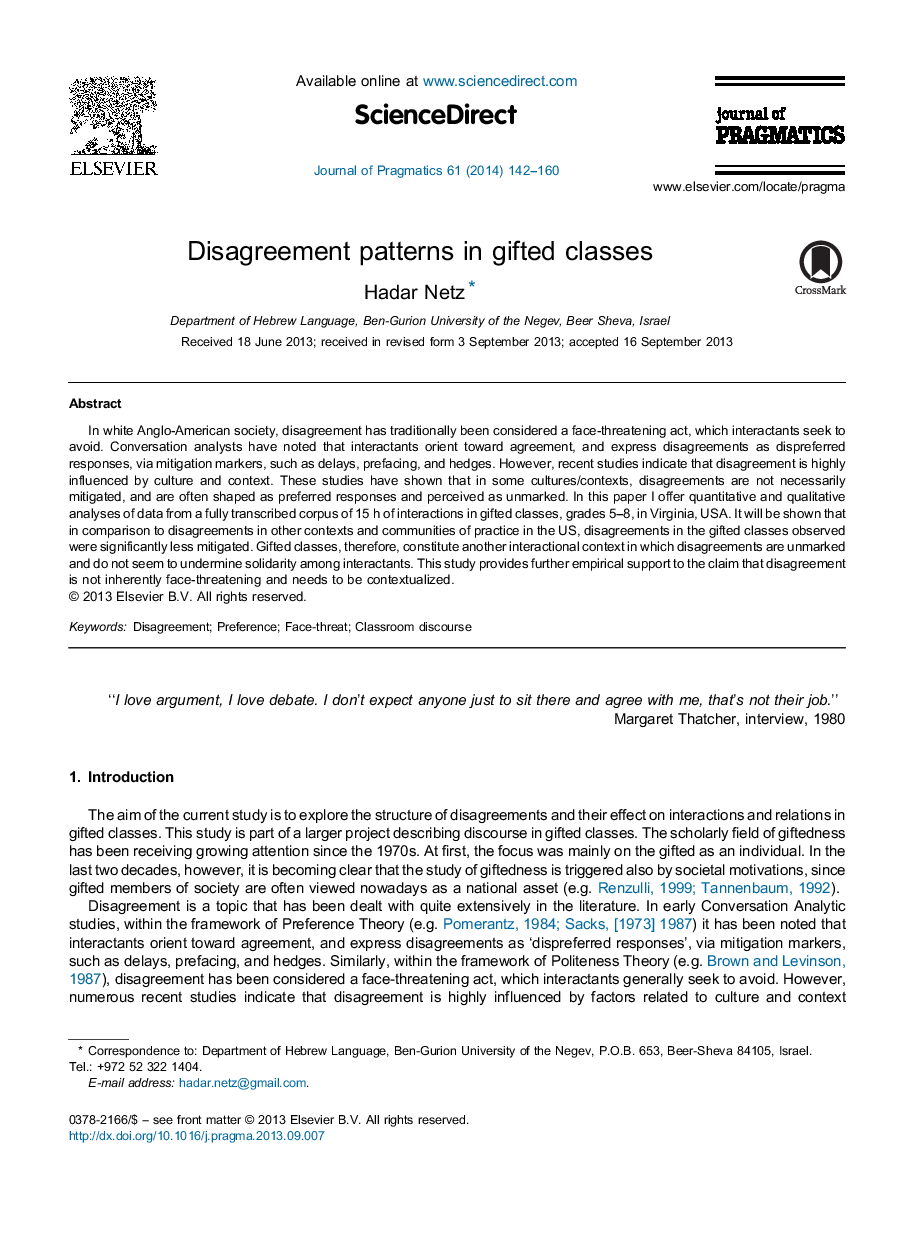| Article ID | Journal | Published Year | Pages | File Type |
|---|---|---|---|---|
| 932787 | Journal of Pragmatics | 2014 | 19 Pages |
•Gifted students tend toward non-mitigated forms of disagreement.•Disagreements in gifted classes do not undermine class solidarity.•Disagreement is not inherently face-threatening.•Teachers of gifted students need not shy away from classroom disagreements.
In white Anglo-American society, disagreement has traditionally been considered a face-threatening act, which interactants seek to avoid. Conversation analysts have noted that interactants orient toward agreement, and express disagreements as dispreferred responses, via mitigation markers, such as delays, prefacing, and hedges. However, recent studies indicate that disagreement is highly influenced by culture and context. These studies have shown that in some cultures/contexts, disagreements are not necessarily mitigated, and are often shaped as preferred responses and perceived as unmarked. In this paper I offer quantitative and qualitative analyses of data from a fully transcribed corpus of 15 h of interactions in gifted classes, grades 5–8, in Virginia, USA. It will be shown that in comparison to disagreements in other contexts and communities of practice in the US, disagreements in the gifted classes observed were significantly less mitigated. Gifted classes, therefore, constitute another interactional context in which disagreements are unmarked and do not seem to undermine solidarity among interactants. This study provides further empirical support to the claim that disagreement is not inherently face-threatening and needs to be contextualized.
